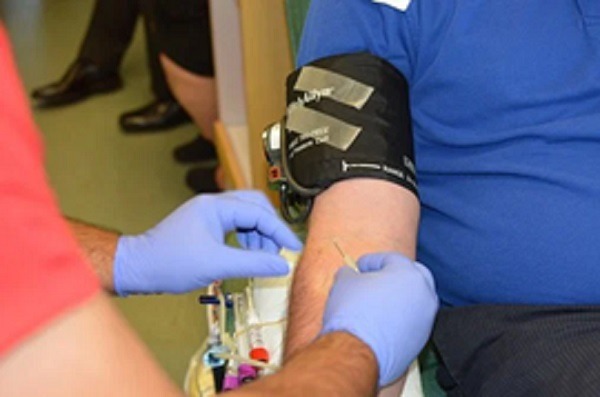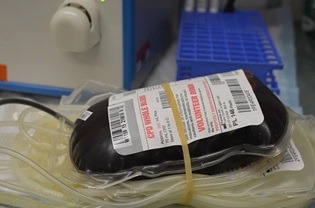Giving blood is one of the most generous acts you can perform. Every two seconds, an American needs blood, and only 38 percent of the population is eligible to donate blood. Your act of generosity could literally save someone’s life — one pint of blood can help up to three people.
But that’s not the only reason to give blood. Giving blood can also have positive effects on your health and well-being. It could lower your risk of a heart attack, protect you from liver disease, and even boost your mood and self-esteem. Let’s take a look at some of the benefits of donating blood.
1. You Get a Free Health Screening
With health care costs still skyrocketing out of control in the U.S., you’re in no position to turn your nose up at a free health screening. When you go to donate blood, the medical professionals in charge of the donation drive have to make sure that you’re eligible to give blood, and that means no bloodborne diseases or health problems that could make giving blood risky. They’ll check your vital signs and blood pressure, and they might ask you some basic health questions. Your blood donation will also be screened for bloodborne diseases. Your pre-donation blood screening might turn up a heart arrhythmia, high blood pressure, a viral infection, or something else you need to address.
2. It Can Protect Your Heart and Liver
Giving a blood donation regularly can be protective for your liver and cardiovascular system. For one thing, if you have high blood pressure or borderline high blood pressure, getting rid of some blood could lower those stats.
Giving blood has also been found to protect against heart attacks by as much as 88 percent, with men experiencing more heart health benefits than women. It’s believed that the iron in your blood contributes to making blood vessels stiff and narrow, which can raise your risk of a heart attack. When you give some blood, you’re lowering your body’s iron reserves, which can protect your heart.
Your liver can also benefit from blood donation. Many liver diseases are linked to excessive levels of iron in the blood. By donating blood regularly, you could avoid non-alcoholic fatty liver disease (NAFLD).
3. It Can Make You Happier
You know that warm, fuzzy feeling you get when you help someone? Regular altruistic activities can have psychological benefits — that’s why so many people volunteer their time to give back to their communities. Giving blood is just one of many ways you can help others, and that regular act of generosity can have knock-on effects for your mental wellbeing. You’ll feel more confident, happier, and more optimistic. You’ll have stronger feelings of control over your life and destiny. And when you give blood regularly, you can cultivate those feelings of self-worth and happiness consistently.
4. It Could Lower Your Cancer Risk
Could donating blood lower your risk of cancer? Blood contains iron, after all, and iron is a known source of free radical damage and inflammation — the kind of cellular damage believed to contribute to many forms of cancer. Regular blood donations could relieve some of the oxidative stress your body faces, and may lower your cancer risk. That’s especially true if you have hemochromatosis, peripheral artery disease, or other blood diseases that raise your cancer risk.
5. It Could Remove Excess Iron from Your Body
Do you need to have excess iron removed from your body? Not necessarily. However, if you suffer from hemochromatosis, regular blood removal can protect you from the ill effects of iron overload. Often, hemochromatosis is hereditary, and you might not even be aware that you have it until the permanent complications begin to arise. Those complications can include heart disease as the excess iron in your blood damages your blood vessels, or liver disease as your liver fails to handle the iron overload. You could even have a higher risk of cancer due to iron overload.
If you do have hemochromatosis, you need to have blood removed regularly anyway to treat the condition. There’s nothing wrong with that blood if you’re otherwise healthy — it’s just that your body is making too much of it. You can donate your extra blood regularly, so it can help others instead of getting thrown away.
Blood donations are always in short supply, so if you possibly can, you should give blood regularly. You could save up to three peoples’ lives per donation, and you could even save yourself.


